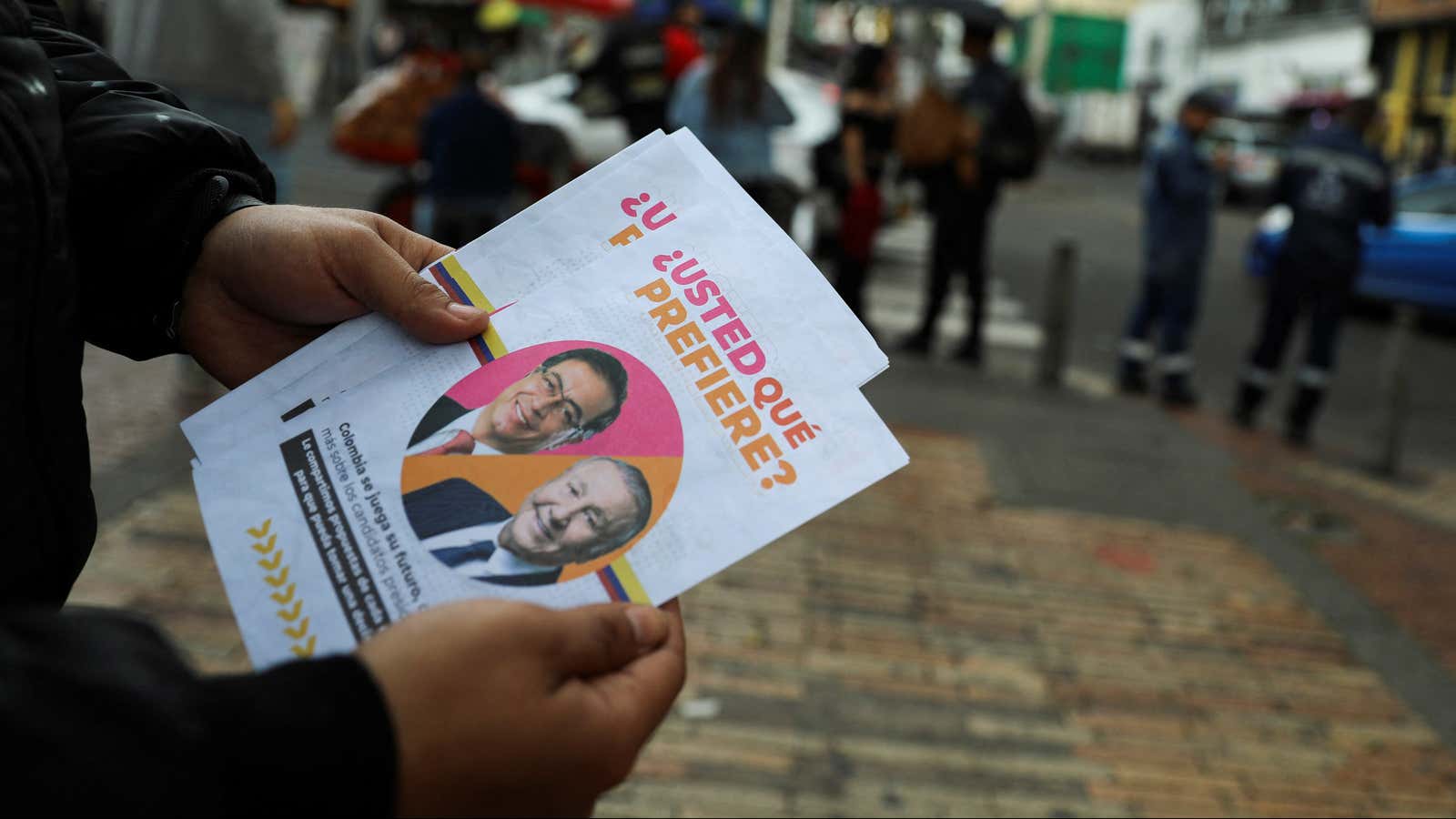Colombians head to the polls on Sunday (June 19) in a second-round presidential election that will mark a new direction for the country no matter the winner.
The race between Gustavo Petro, the leftist former mayor of Bogotá and an ex guerilla, and Rodolfo Hernández, a TikTok-savvy construction magnate, is the closest in recent memory, with polls pointing to a virtual tie. Both candidates represent a stark departure from the political establishment that has ruled Colombia for decades.
Though the Colombian economy has bounced back from the pandemic, it remains hamstrung by a huge informal sector—60% of workers are off the books—and some of the highest levels of inequality in the region. Nearly half of Colombians see the economy as getting worse, with the share increasing to almost 60% among the poorest. Both Petro and Hernández are promising radical changes.
It’s part of a broader movement in the region away from the political center and towards the extremes. Here’s a look at the two candidates’ economic agenda:
🛢️ Oil
Petro wants to halt new development of oil, Colombia’s top export, and phase out fossil fuels. Hernández, too, wants to move to clean energy, but wants to keep the oil industry running.
🚢 Trade
Both candidates lean toward protectionist policies. They have said they want to revisit trade deals and increase tariffs.
🧾 Taxes
Petro wants to increase tax collections by 5%, in part, by cutting company exemptions (link in Spanish). Hernández, meanwhile, wants to slash the value added tax by nearly half and attack corruption to curb government spending.
🥅 Social safety net
The two candidates want to give older Colombians (Spanish) who don’t qualify for the pension system a monthly stipend.
Petro is proposing the government provide a job to unemployed Colombians who can’t find one. Hernández, meanwhile, wants to boost jobs (Spanish) by cutting red tape and supporting small companies and startups.
Polls close at 4pm local time on Sunday, with election results expected later in the evening. Whoever wins will have to patch divisions among both the electorate and congress to implement change.
